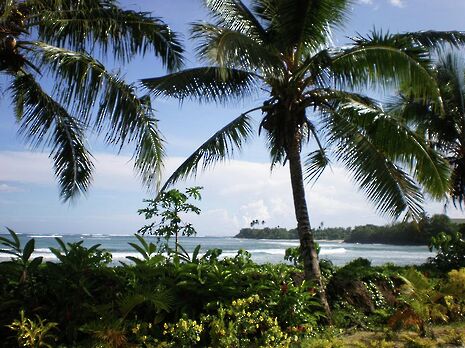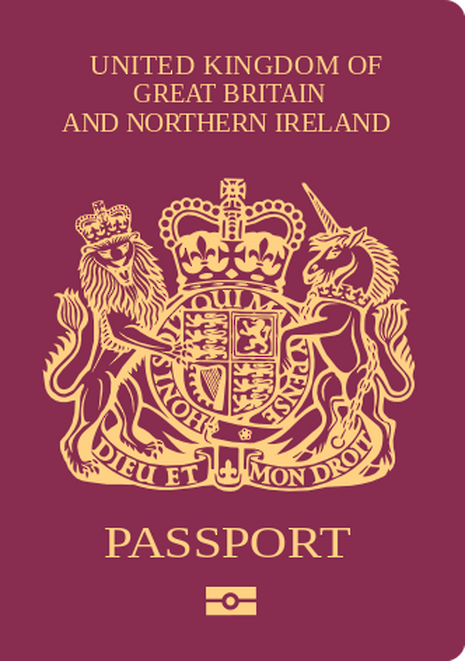My experience of sexual harassment in Samoa
Yasmin Walters shares her story of the ordeal she faced while abroad for her medical elective

Lying in the dark, thoughts flash through my head. "Why am I wearing gross cotton briefs today? Why is my lady garden more like a forest?" Familiar quandaries for the university student, usually after one too many 2-for-1 cocktails at Cindies. Except I'm not drunk, it's the middle of the day and I'm thousands of miles from those hallowed, sweaty halls. I'm being sexually assaulted, and I'm paying for the privilege.
My attacker, the masseur who gave me the unhappiest of endings, now languishes behind bars awaiting trial. Although comforted by the knowledge that he can’t hurt anyone else, still I teeter on the brink of existential crisis. Old clichés of blaming myself and feeling unclean are interspersed with other thoughts. Thoughts about race, gender and culture. I know, such a black feminist, right?
During my medical elective in Samoa I experienced the best and worst of its culture. A relatively conservative Christian population is being invaded by western thinking. Bringing positive developments, such as a newly built national hospital and burgeoning tourism economy, the clash of ideals creates many new problems. Traditionally women were modestly dressed, their virginities prized and status limited. Even today they cannot hold the position of matai (tribe chief), leaving them ineligible to run for government. However, increasingly women are replacing their lava wraps with jeans and shirts, and assuming positions of greater power and responsibility.
This shift is not yet being reflected in male-on-female crime. The World Health Organisation found that 40 per cent of Samoan women commonly experience physical abuse, and 20 per cent suffer sexual abuse, usually committed by their partner. Surprisingly, more than half of these women make police reports. When I was assaulted I was supported brilliantly by the small but enthusiastic sexual crime police unit. However most women (86 per cent of those surveyed) believe this violence is normal, and so this section of the police force is left under-utilised and irrelevant.
Currently Samoans, especially the males, receive highly sexualised images of western women from the media. Whilst many believe all those of a lighter complexion prefer to gyrate in their birthday suits for the entertainment of men, I hope that soon we will also see feminism start to wash up on the shores of this Pacific island. Women may begin to realise they stand as equals, that they control their bodies. We could see an end to the male entitlement so many have had to put up with, including myself.
I’ve been fortunate to travel throughout the world, and I’ve learnt that many languages have a term for foreigners. Kenya has “mzungu” whilst Malaysians use “ang moh”. In Samoa we were “pulagi”. My feelings would range from amused to outraged when I heard the word spoken by people, presuming my ignorance. Usually meant without ill-will, there were occasions where it felt derogatory. Whilst travelling there must always be a fine balance of respect between the local hosts and visiting foreigners. It’s not always perfect, and when unbalanced it can lead to uncomfortable situations.
Where does this leave foreign women like myself, who come to Samoa to volunteer, to work or to learn? Currently I believe we stand on the unsteadiest of ground. It’s as though my British accent and different skin left me even more vulnerable to male harassment. I was exotic, different and, apparently, fair game. I received regular unsavoury advances, including at work in the A&E. Samoan staff were left unbothered, whilst I fended off attention from both patients and hospital workers. I distinctly remember placing a cannula in the arm of a dying man whilst the portable X-ray radiographer quizzed me on my marital status, alcohol consumption and weekend plans. Not cool. The vast majority of men were respectful, but these incidences opened my slightly naive eyes. A stark reminder that despite a Cambridge degree and medical education, some men only see me as a sexual object.

It is an internationally recognised fact that your flirting game is exponentially improved by alcohol consumption. No, really, it is. As at home, with more beer comes greater conspicuity. I can confidently say that nothing gets me more in the mood than unsolicited boob grabbing, and by in the mood I mean “likely for me to swing for you”. I’ve become accustomed to this behaviour through a youth spent in shit clubs with even shitter men, yet was still unprepared for just how much worse it felt when you’re a different race. It was as if my UK passport meant the rules did not apply and I was entitled to a barrage of vulgar propositioning like never before. I was grateful for the group of boys I lived with, who meant I never felt too unprotected or uncomfortable when in clubs. However I shouldn’t have required male company to feel secure. That is not what being a modern woman is about.
I refuse to let my attack define or dictate my elective memories. Samoa is a wonderful country of delightful people, where I gained invaluable professional and personal experience. I truly hope to return one day, but I sometimes can't help mentally dissecting the events. I chastise myself daily; the things I did or didn't do, the ridiculous thoughts that ran through my head as I tried to think my way out of the situation. Who on earth worries about the state of their pubic hair while being raped? Me apparently. These moments pass, and hopefully will begin to occur less frequently. What won't change, however, is the person this has left me. I am stronger, wiser and possess a new incentive for life. It has shaped the doctor, daughter, sister and woman I am. Regardless of culture, country, gender or race, rape is wrong. It is not your fault. It is now my goal, my responsibility, to share this truth.
 News / Fitz students face ‘massive invasion of privacy’ over messy rooms23 April 2024
News / Fitz students face ‘massive invasion of privacy’ over messy rooms23 April 2024 News / Climate activists smash windows of Cambridge Energy Institute22 April 2024
News / Climate activists smash windows of Cambridge Energy Institute22 April 2024 News / Copycat don caught again19 April 2024
News / Copycat don caught again19 April 2024 Comment / Gown vs town? Local investment plans must remember Cambridge is not just a university24 April 2024
Comment / Gown vs town? Local investment plans must remember Cambridge is not just a university24 April 2024 News / Emmanuel College cuts ties with ‘race-realist’ fellow19 April 2024
News / Emmanuel College cuts ties with ‘race-realist’ fellow19 April 2024




